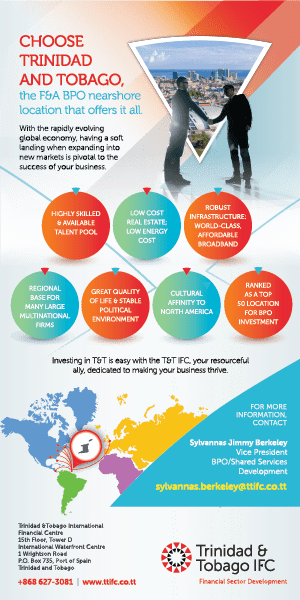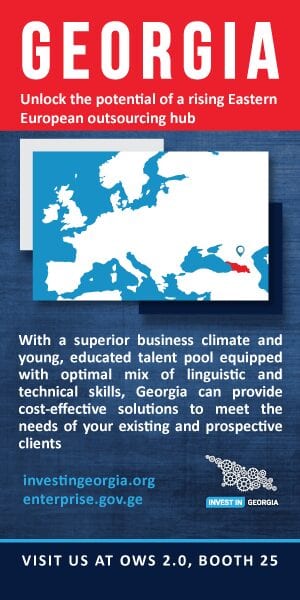In 2.0, agility is not an option. It’s essential.
With today’s digital disruption, organizations need to constantly reinvent themselves and make smart moves at the right times.
While technology is powering business transformation, the true differentiator is not machines but people.
“The bottom line is that businesses will need to transform their people to truly unlock the power of their technology,” says Yaarit Silverstone, Managing Director, Strategy, Talent & Organization, Accenture. “The digital revolution requires highly adaptive talent: agile enough not only to keep pace with constant technology change but also to anticipate and shape it.”
A recent Accenture survey showed that three out of four C-suite executives believe that if they don’t scale artificial intelligence (AI) in the next five years, they risk going out of business entirely.
If you want to learn how to future proof your workforce amidst digital disruption, be sure to attend Silverstone’s keynote on Tuesday, Feb. 18 on the center stage. In her talk on the Future of Work, she will share how organizations can unlock the full potential of their people by creating resilient organizational models, reshaping work in conjunction with Artificial Intelligence, and empowering employees to reinvent themselves and their career journeys.
“Digital is disrupting everything, driving the need for continuous reinvention or transformation,” she says. “Successfully navigating current disruptions and thriving requires organizations (or leaders) to shake off old thinking about transformation and traditional approaches. They need to have the courage to go big on innovation, while simultaneously investing in their core businesses and unlocking the potential of their organizations and people. Stakes are high, and timing is everything.”
Other Keynote Presentations at OWS2.0
Monday, Feb. 17:
Global Outlook 2020: The Quest for Growth Amid the Turmoil, presented by Dr. Marci Rossell, Former CNBC Chief Economist and Co-Host of Squawk Box. Dr. Rossell will predict how the economic growth will unfold in the year ahead with the pressures of trade wars, tariffs, Brexit, and with the 2020 U.S. elections.
Fireside Chat: The Future of GBS, moderated by Atul Vashistha, COP, Chairman, Neo Group. Panelists Suzanne Leopoldi-Nichols, President of GBS at UPS and 2020 IAOP Leadership Hall of Fame inductee; and Ofelia Fernandez, LAC Regional Financial Controller & General Manager, Enterprise Operations Bogotá, Diageo. Hear how leading enterprises are leveraging GBS to enable transformation, accelerate revenues, launch new products and optimize operations.
Human-Machine Collaboration
Technology has and will continue to fundamentally change how people work and the skills needed to do this work.
For example, automation and AI are relieving workers of repetitive, complex, physically taxing tasks and freeing them up to focus on higher-value work that requires human strengths, such as creativity, dexterity, judgment, complex reasoning and social-emotional intelligence. The future value lies with businesses finding ways for humans to collaborate with machines to augment their work and elevate their capabilities.
“This human plus machine relationship will be a critical differentiator for leading organizations,” Silverstone says.
Accenture research shows that 67 percent of workers say it is important or very important to develop their skills to work with intelligent machines in the next 3-5 years. And 62 percent of business leaders expect the share of roles requiring collaboration with AI to increase in the next three years.
However, business executives are underinvesting in skill development with only 3 percent of surveyed executives saying they plan to significantly increase investment in skill development programs in the next three years, Silverstone notes.
Workforce Vision and Strategy
OWS2.0 attendees will come away with a better understanding of how to create a plan to move their workforce into the new world.
“To successfully transform its people, a company needs to define a workforce vision and strategy aligned to the business strategy that drives dramatic change in human potential and performance, while getting the best out of every individual, at massive scale,” Silverstone says.
To build a future workforce today, companies need to reimagine their:
-
- WORK to define what work needs to get done and what skills will be needed to do this work
- WORKFORCE to include innovative sources of talent and prepare the future workforce through new skilling
- HR to lead people in the new by transforming their skills and capabilities and create a hyper-personalized employee experience that attracts and retains the best talent.
Transforming Your People
According to Accenture, here are some questions to consider:
-
- How will work need to change due to digital disruption?
- What skills will be needed to do this work?
- What are the right sources of talent to perform this work? What capabilities do we build, buy, borrow or bot?
- How do we new-skill employees to have these future capabilities?
- How do we build an agile workforce, one that is adaptive and can keep pace with constant technology changes?
- What skills and behaviors does our leadership need to lead transformation?
- How do we build the right mindsets and behaviors to sustain change?
- How do we reinvent HR to lead this people transformation?







